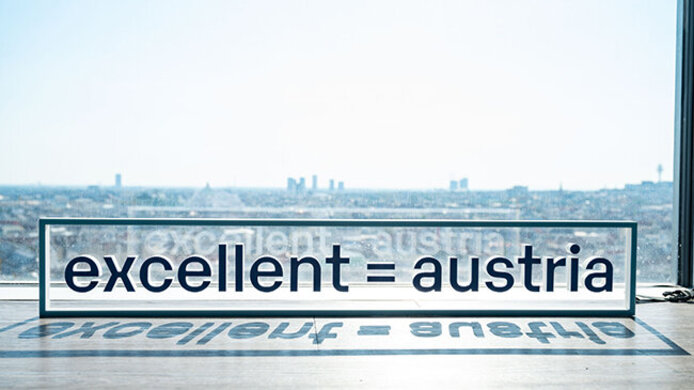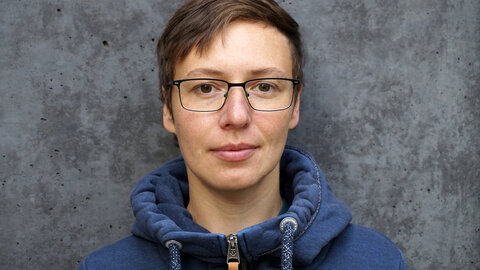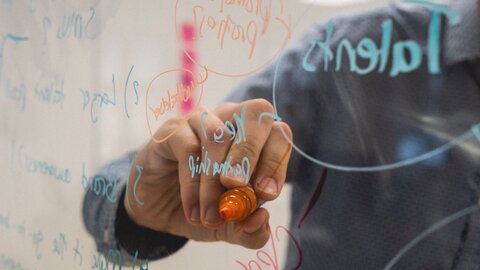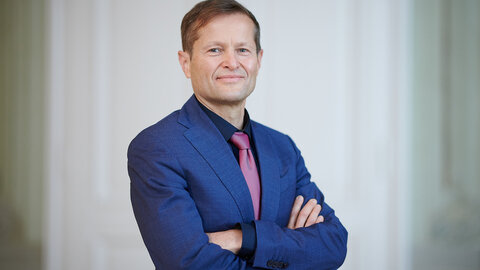Eleven Teams Compete in Final Round for Austria’s New Research Clusters

The second round of the selection procedure for Austria’s new “Clusters of Excellence” grant has now been concluded: Eleven consortia have qualified for the final round due to the outstanding quality of their research. The FWF Board’s selection is largely determined by the recommendations of the 16-member international jury that evaluated the consortia’s potential for innovation and excellence of research on the basis of peer reviews from around the world.
Finalists selected on the basis of international reviews and jury’s discussion
The 35 pre-proposals submitted were evaluated in writing by four international reviewers each. The FWF worked together with the European Science Foundation to nominate reviewers in an effort to avoid conflicts of interest on the national level right from the beginning. During a two-day meeting, the members of the jury, all renowned researchers from the relevant disciplines, under the chairmanship of Stephen Curry (Imperial College London; panel member of the European Research Council, ERC), discussed the pre-proposals on the basis of the reviews received. In the end, the jury gave the FWF Board the recommendation to invite eleven projects to submit a full proposal. After consideration of a detailed report on the reviews by the chair of the jury, Stephen Curry, the jury’s discussion, and a brief written statement of the jury, the FWF Board endorsed the jury’s recommendations at its latest meeting. The teams selected are now given the opportunity to further elaborate their research project in a full proposal and submit it for the final round of the decision-making process.
You can find an overview of the eleven consortia here
The international jury is composed of the following researchers: Stephen Curry, Imperial College London (Jury Chair), Anastasia Ailamaki, Ecole polytechnique fédérale de Lausanne, Roberto Caldara, University of Fribourg, Jane C. Falkingham, University of Southampton, Maria Fällman, Umeå University, Russell Gray, Max Planck Society, Annette Hill, Lund University, Marc-Antoine Kaeser, Université de Neuchâtel, Deborah E. Leckband, University of Illinois Urbana-Champaign, Søren Kragh Moestrup, Aarhus University, Anne Ingeborg Myhr, NORCE-Norwegian Research Center, Petri Pellikka, University of Helsinki, Mika Rämet, Tampere University, Jane Rylett, Western University, Kenneth Ruud, The Arctic University of Norway.
Final round of the three-stage award procedure
“Clusters of Excellence” grants are awarded based on the bottom-up approach: the researchers and their institutions are free to decide which research questions they wish to pursue. The third round of the award procedure—the review of the full proposals and the hearing in March 2023—will ultimately decide who receives a grant. As was the case in the decision on the pre-proposals, the FWF relies once again in the third stage on an international jury to evaluate the quality of research. Under the chairmanship of Stephen Curry, a jury of internationally renowned researchers will evaluate the full proposals submitted, taking more detailed and new aspects of the project into consideration and basing its decision on the peer reviews received. The final funding decisions will be made by the FWF Board in March 2023 on the basis of the jury’s recommendations. The first clusters will be able to begin their research starting in June 2023.
Clusters of Excellence: Top-level research, training, and knowledge transfer
The amount and flexibility of research funding are critical for competing with the best researchers in the world. In the Clusters of Excellence, the first programme of the excellent=austria Initative, a total of up to €70 million (over ten years) is available to research teams to conduct forward-looking large-scale projects in basic research—the volume exceeds all previous funding programmes for basic research in Austria. A Cluster of Excellence is characterised by the successful combination of top-level research, research-oriented training and promotion of young researchers, and the national and international exchange of knowledge. The funding programme provides groups of researchers at Austrian research institutions with the opportunity to achieve outstanding cooperative research results in one field or interdisciplinarily. The goal is to establish this research field in Austria in the long term at a top international level. Particular emphasis is also placed on equal opportunities and diversity. In addition, special importance is given to the transfer of knowledge and technology in the form of collaborations with business and society. A Cluster of Excellence is expected to take a leading role internationally in the development and expansion of its chosen research field.
Previous related articles
- December 2021: Konzeptanträge für „Clusters of Excellence“ eingereicht (only available in German)
- September 2021: 36 Teams in the Race for Austria’s new Research Clusters
- Mai 2021: Launch of Austria’s new Beacons of Basic Research





